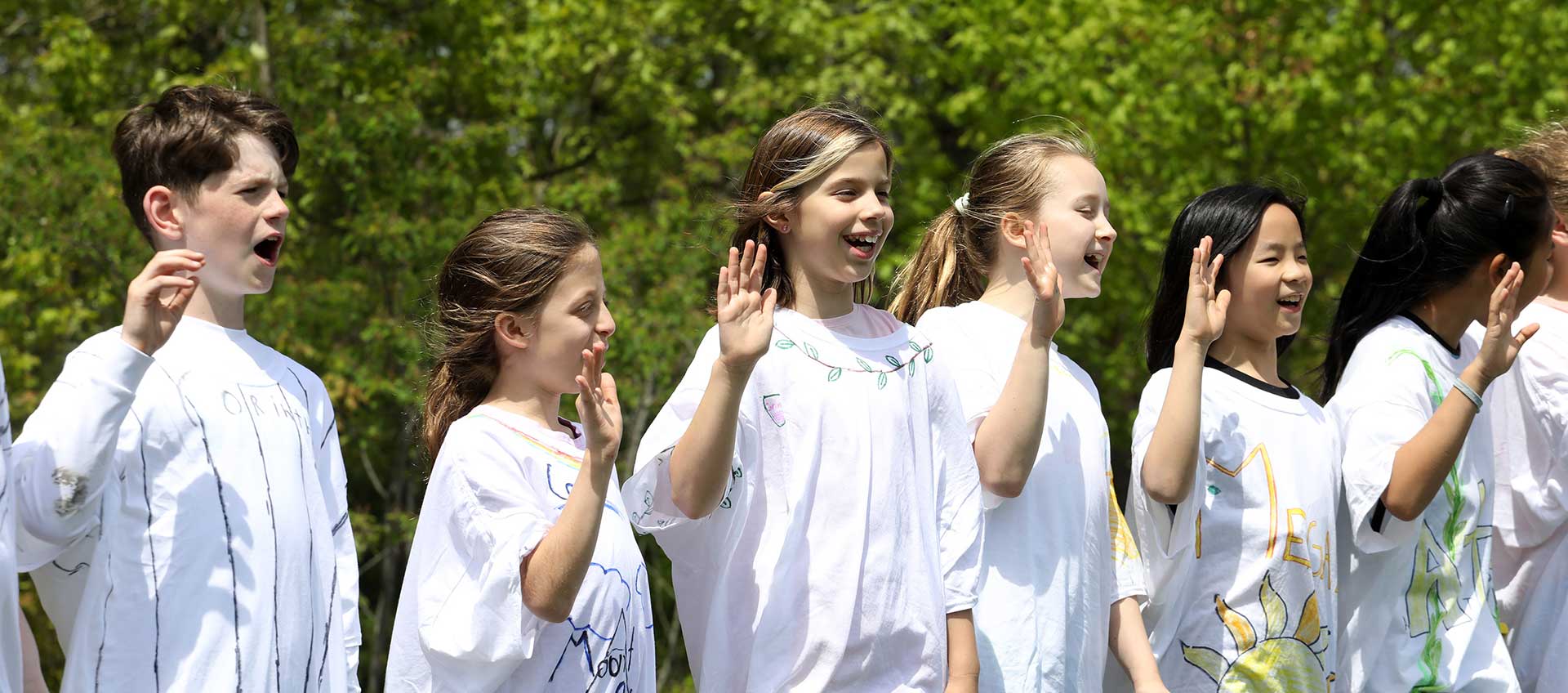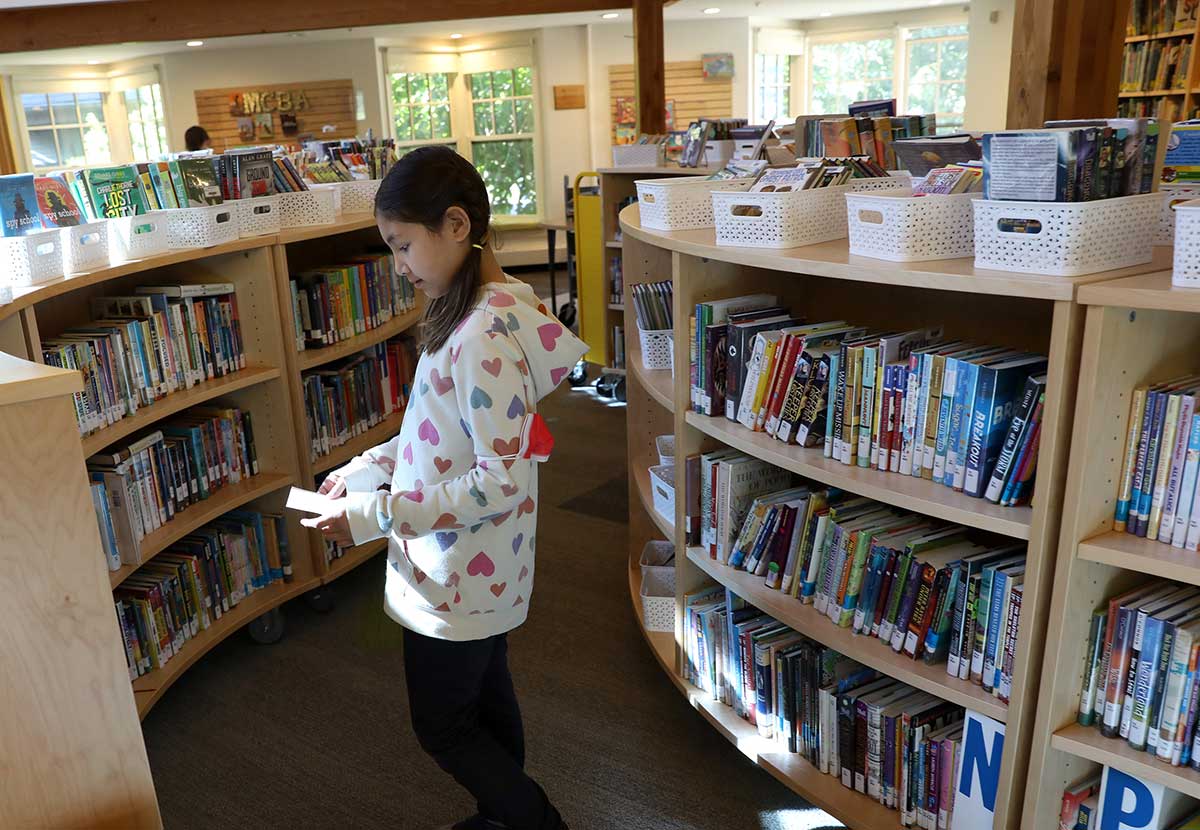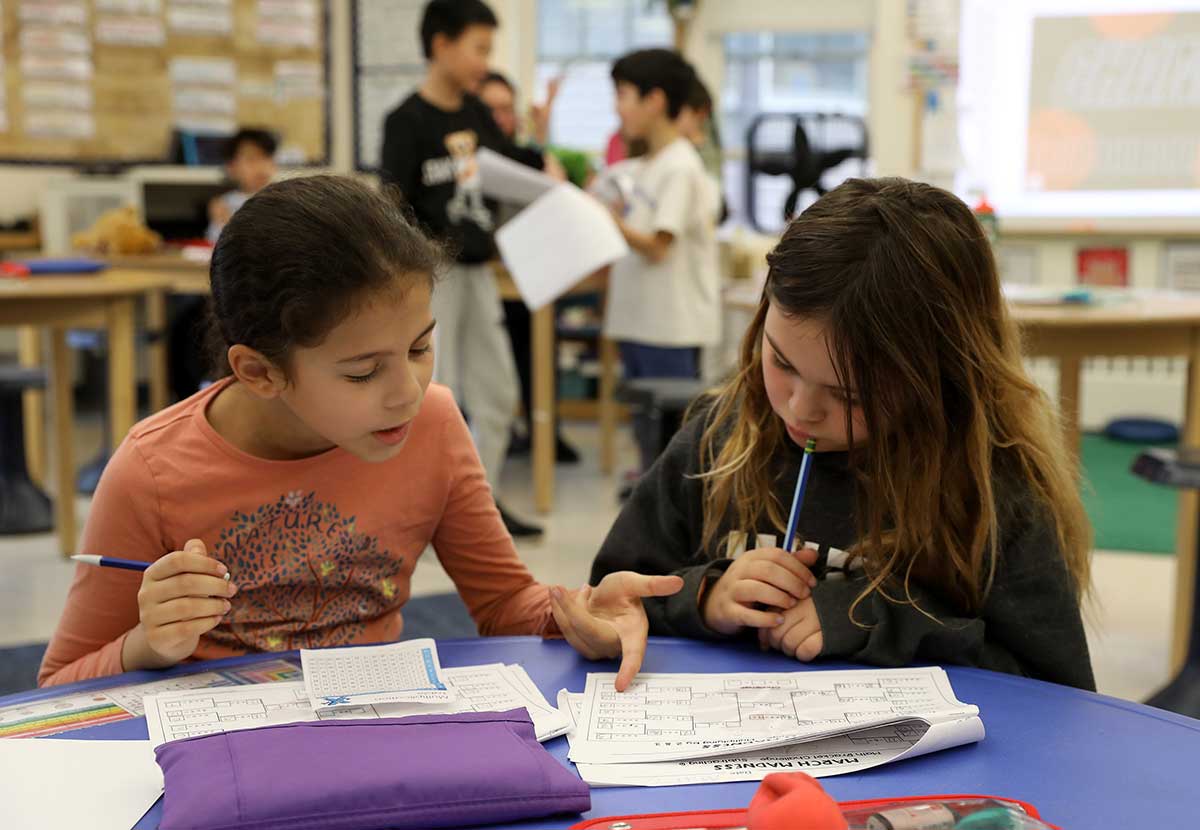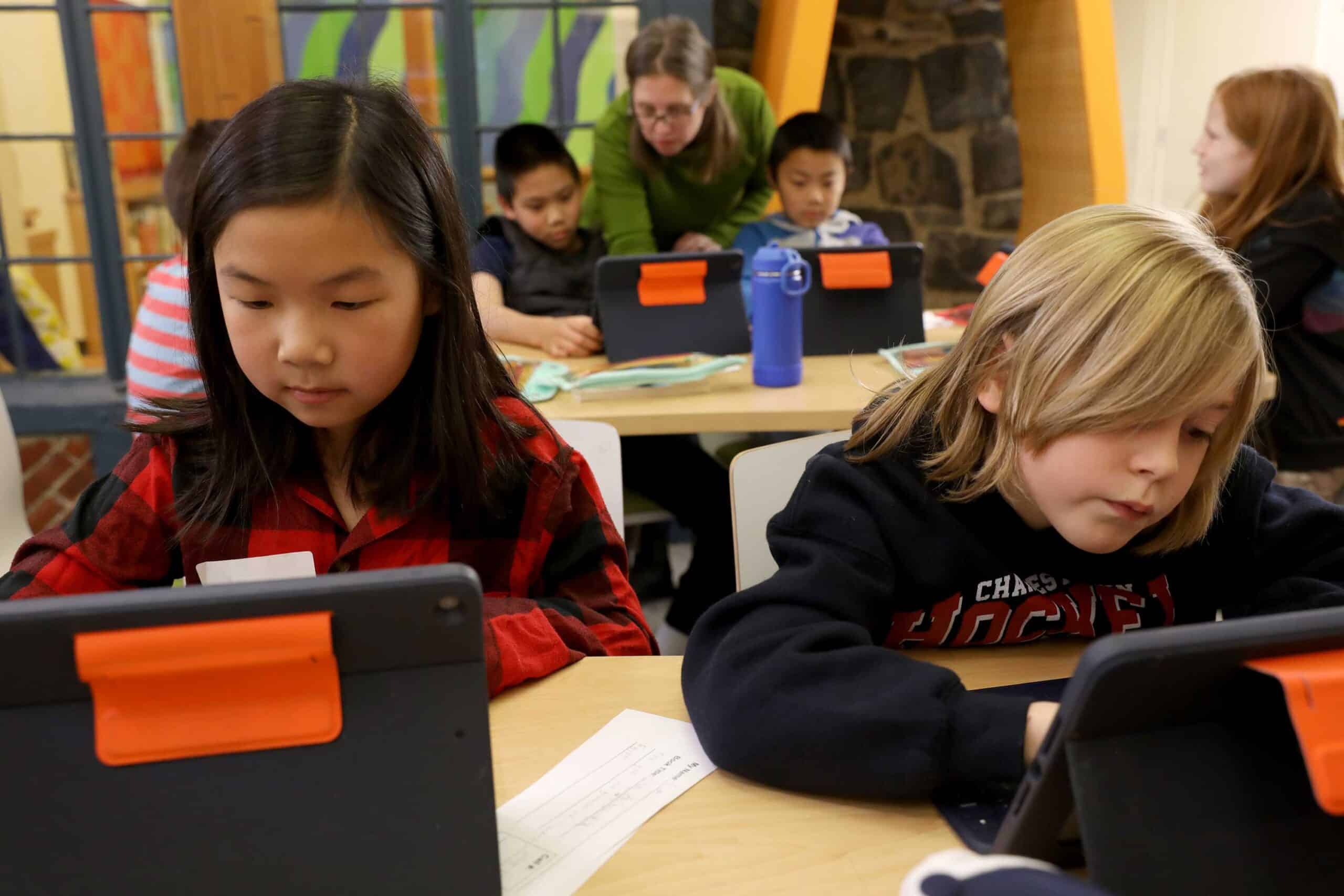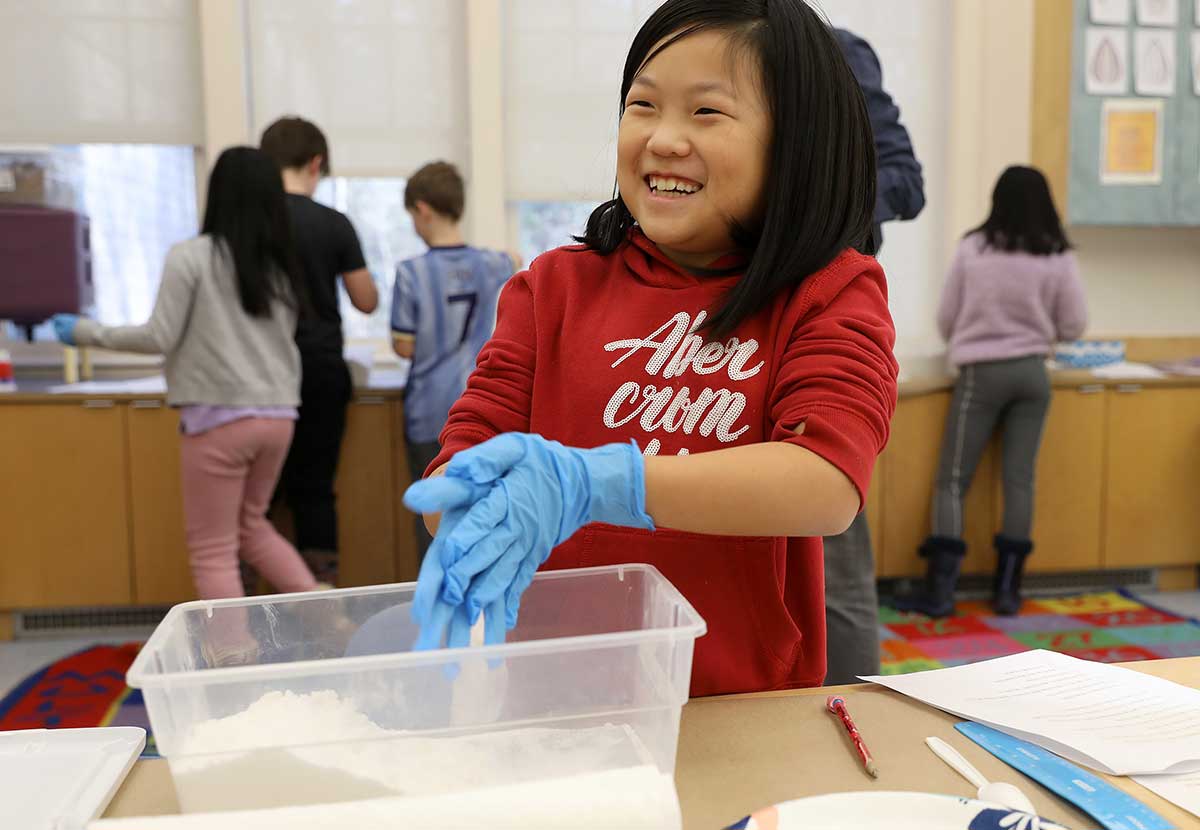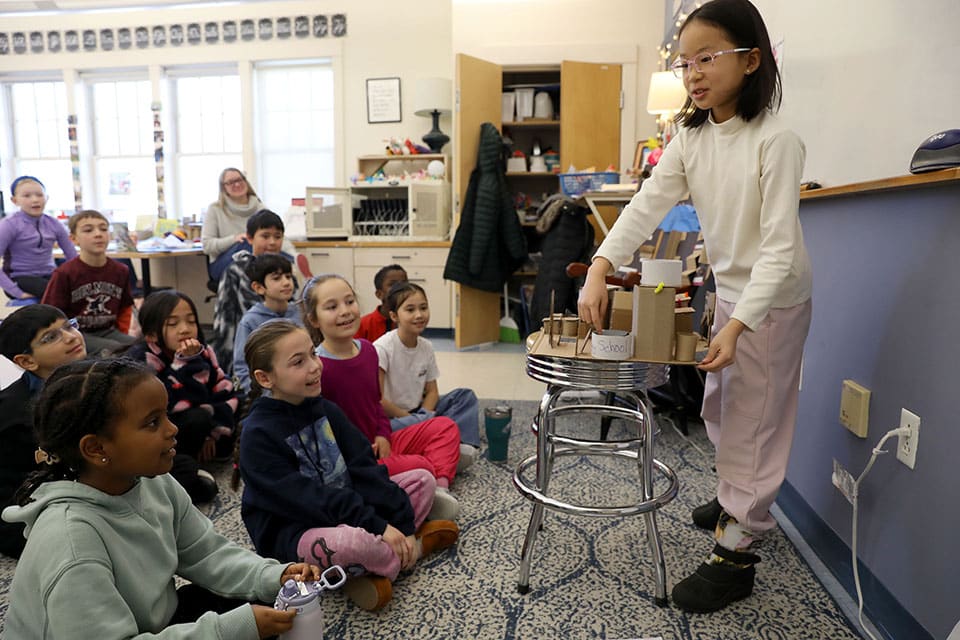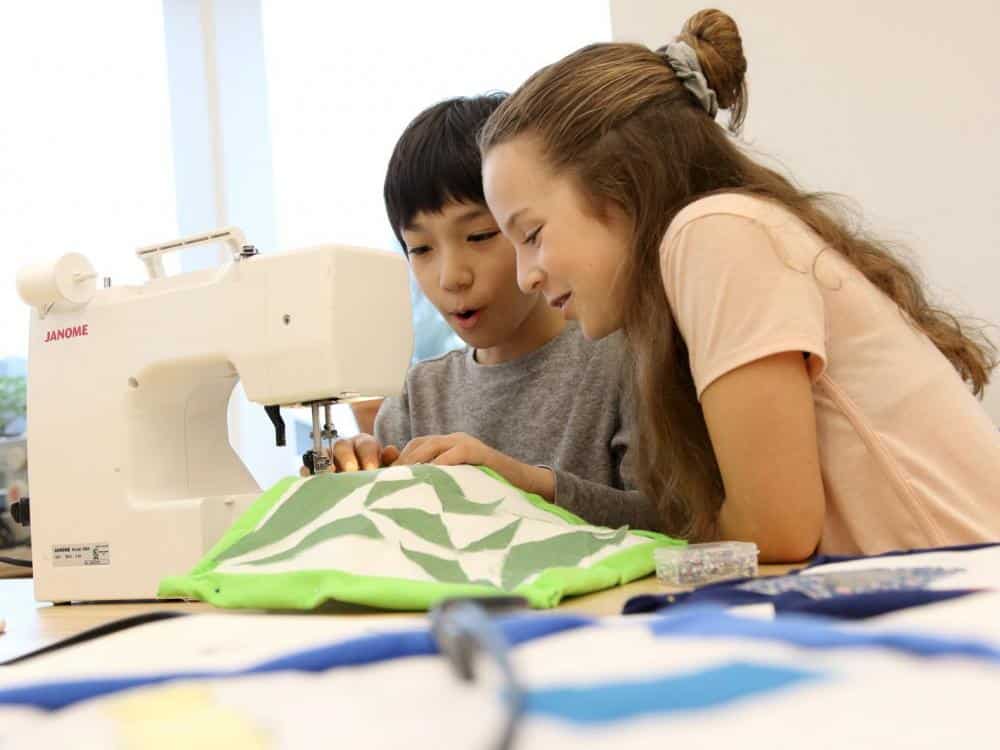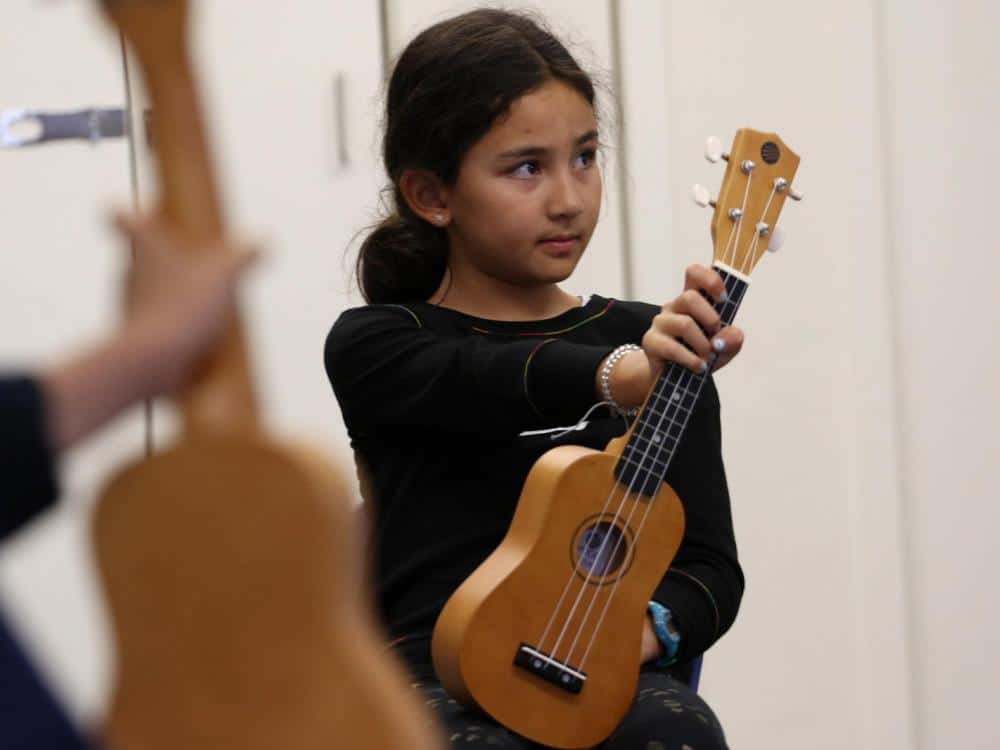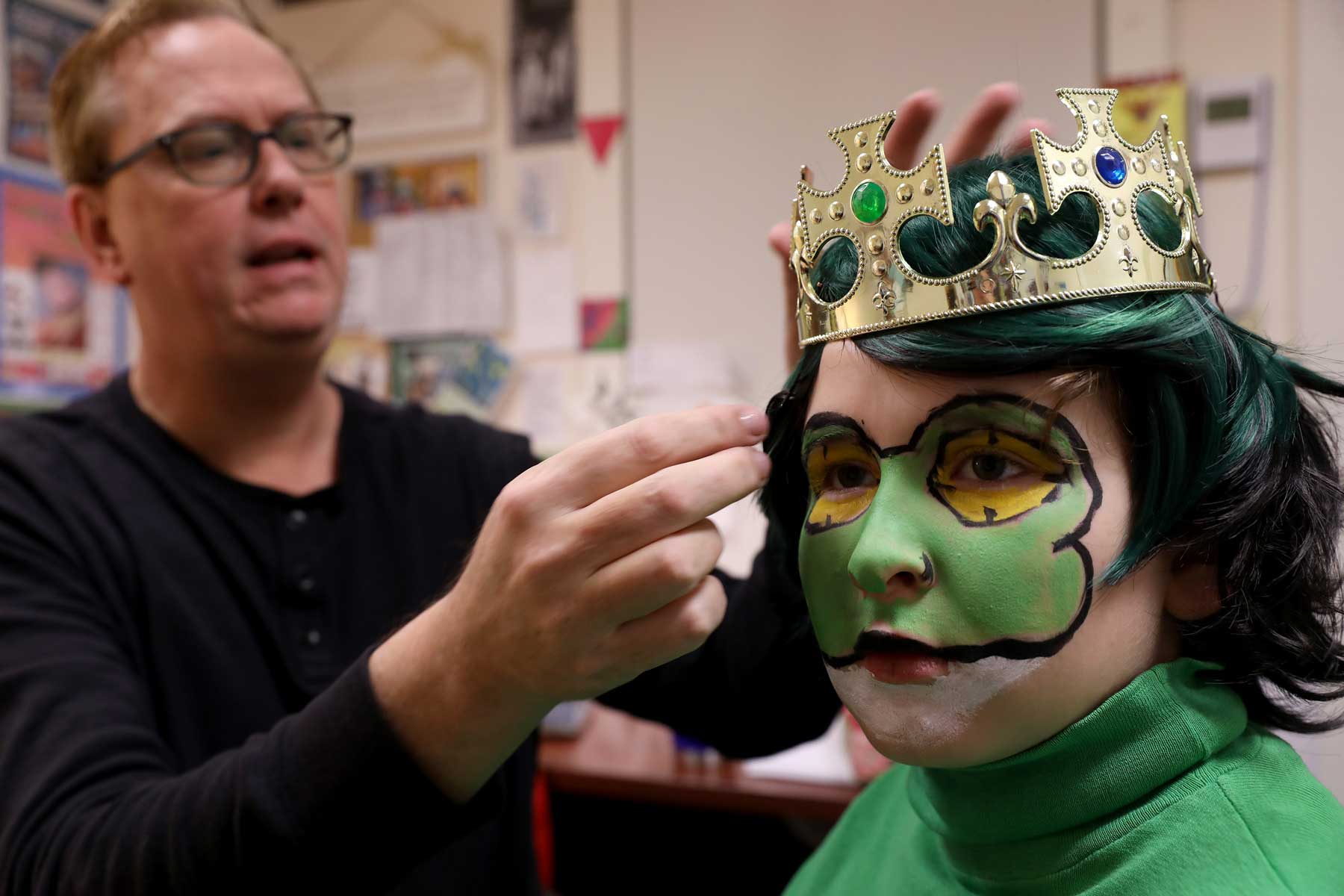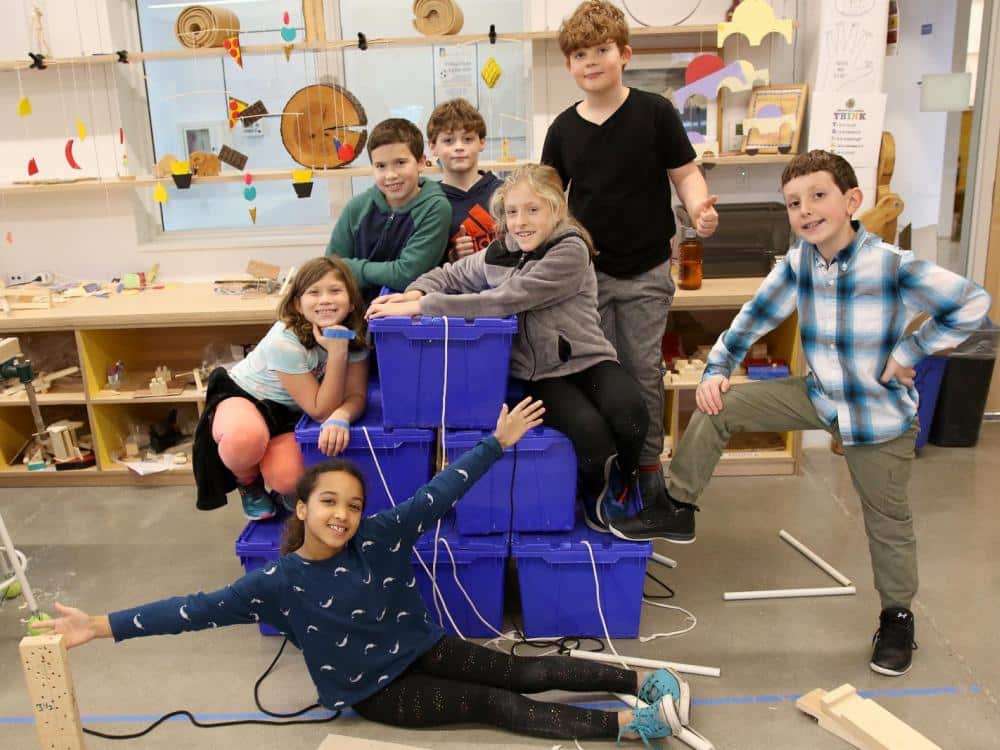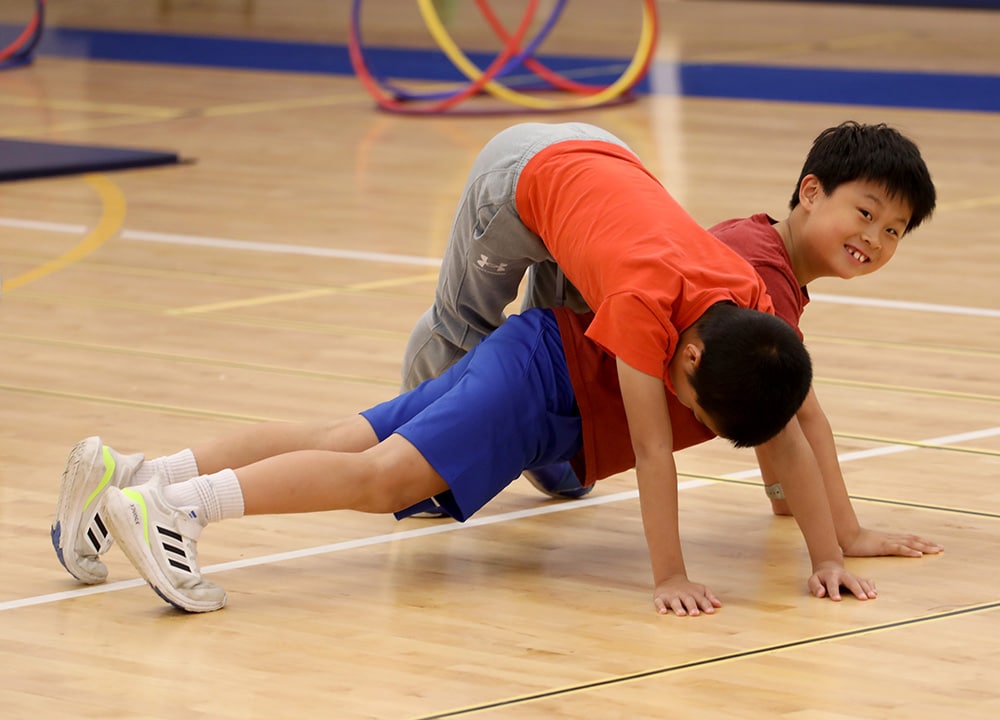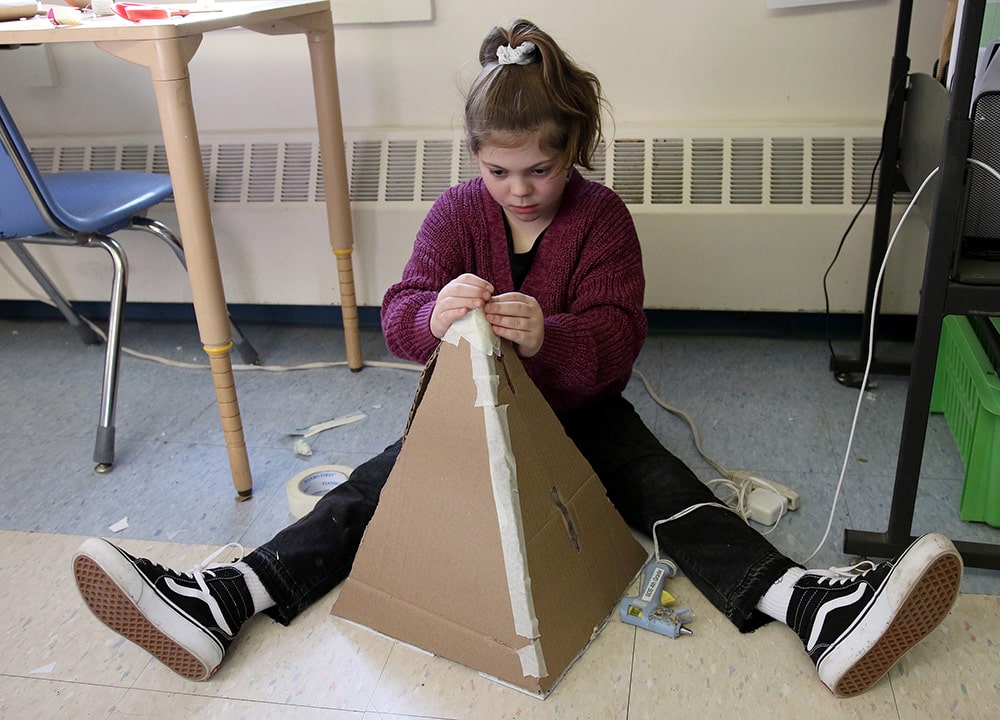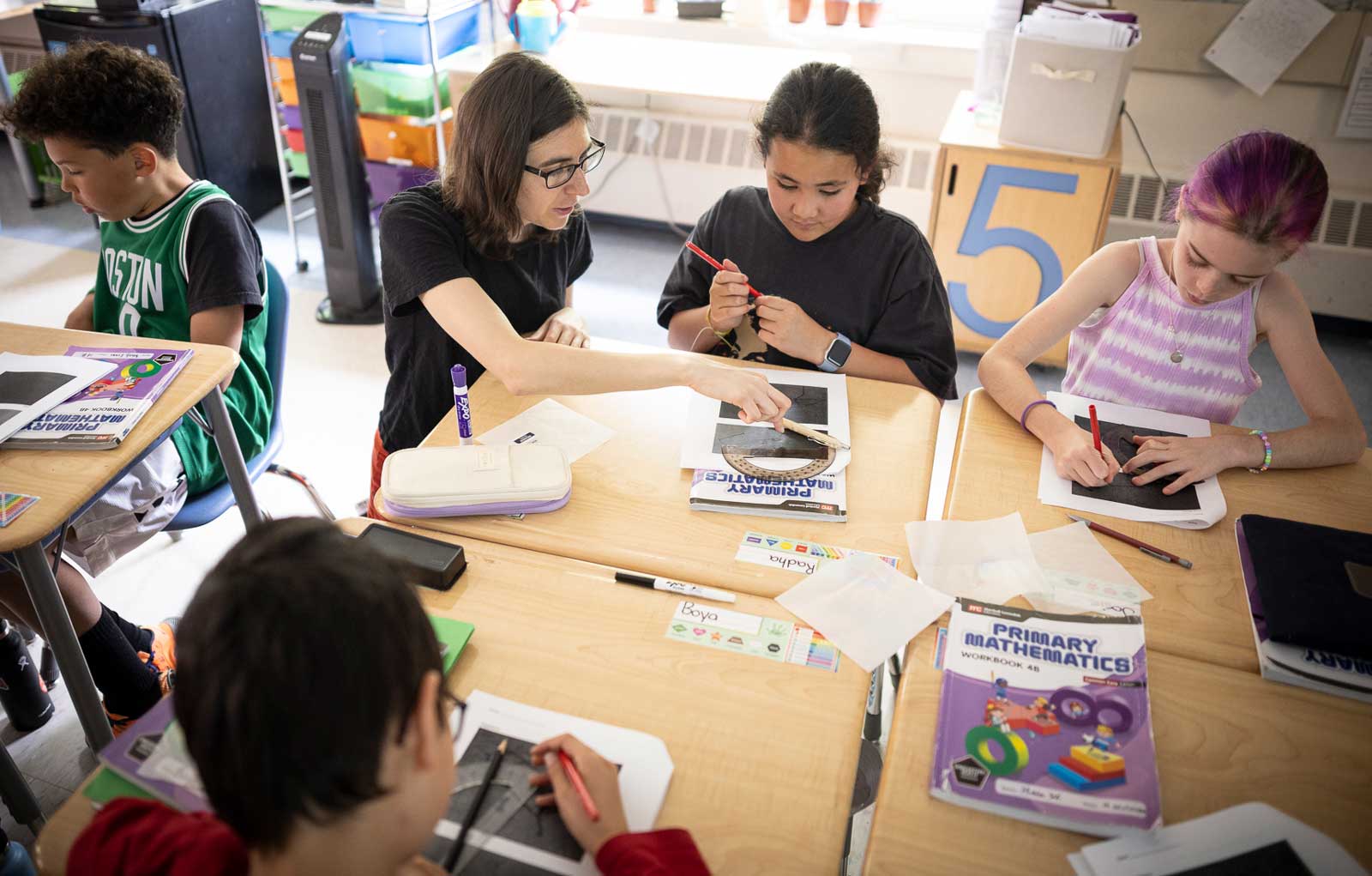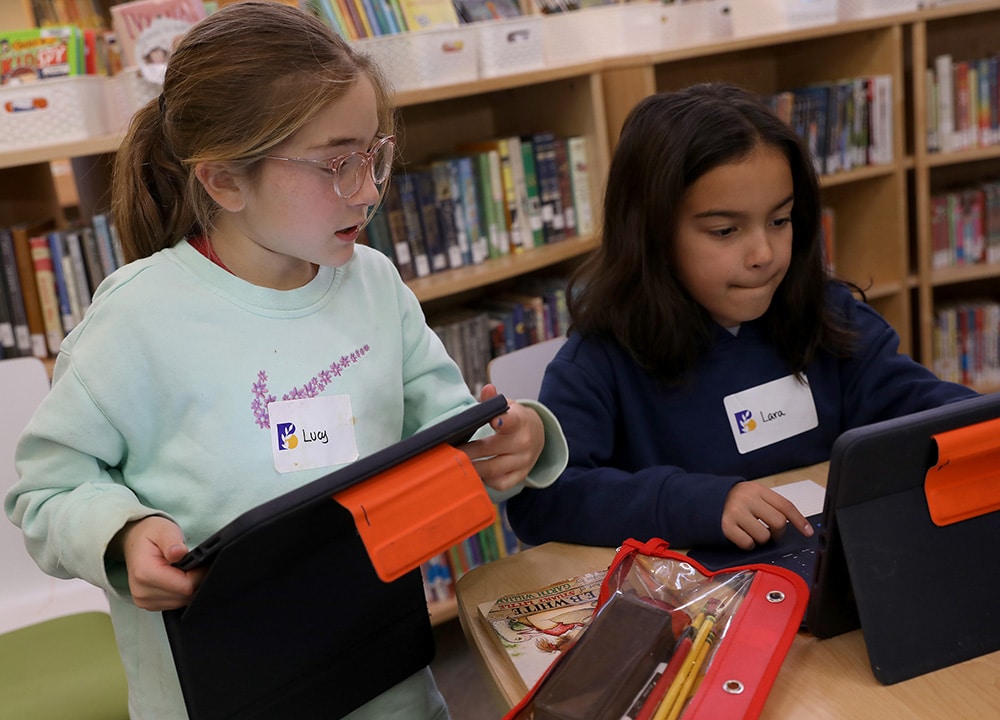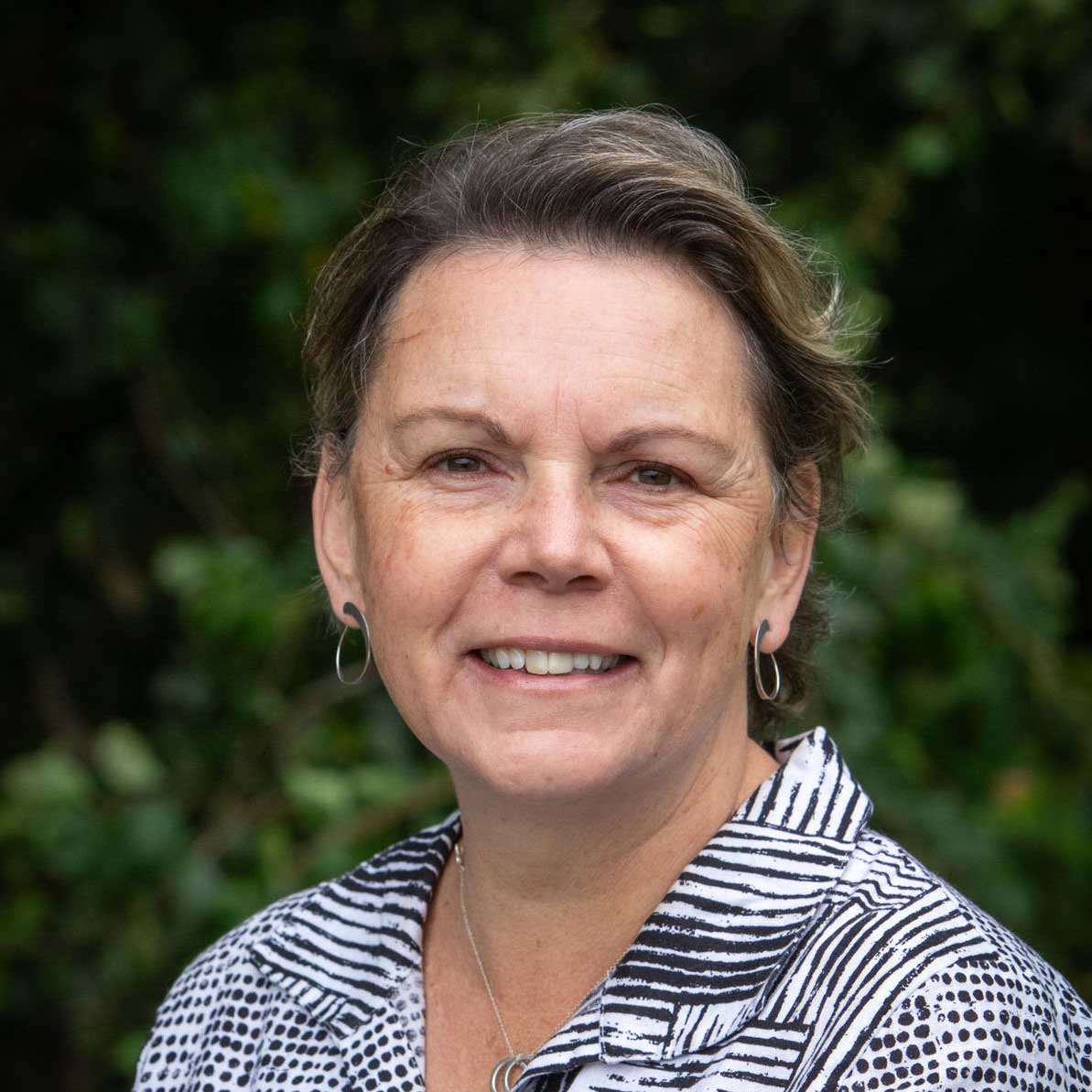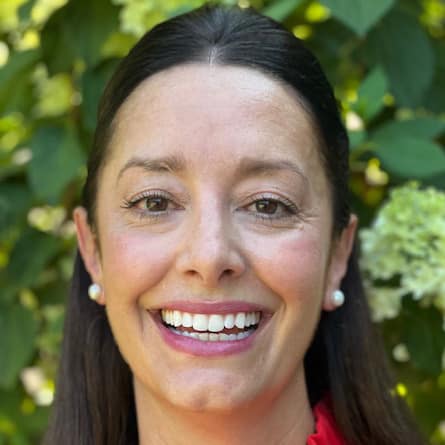Fourth grade is a year of exciting intellectual progress and growing independence. Students read with higher levels of fluency, expression, and comprehension. Their writing becomes more detailed and dense, their subject matter more intellectual, abstract, and conceptual. Research is more extensive and culminates in written and oral presentations about ancient Egypt and ancient Greece. Fourth grade students savor performances of all sorts. They take on complex logic problems and science experiments. Throughout the year, they internalize the importance of practice, attention to detail, and good organization.
Program Highlights
- Greek Festival
- Pyramid project
- Reading Greek myths and The Odyssey
- Superhero stories
- First grade partners
- Mummifying Cornish hens
- Plant cultivation
Specialist Time
- Spanish twice a week for 45 minutes
- Art studio once a week for 45 minutes
- Music once a week for 45 minutes
- Theater arts once a week for 45 minutes
- Woodworking once a week for 45 minutes
- Physical education three times a week for 45 minutes
- Library once a week for 45 minutes
